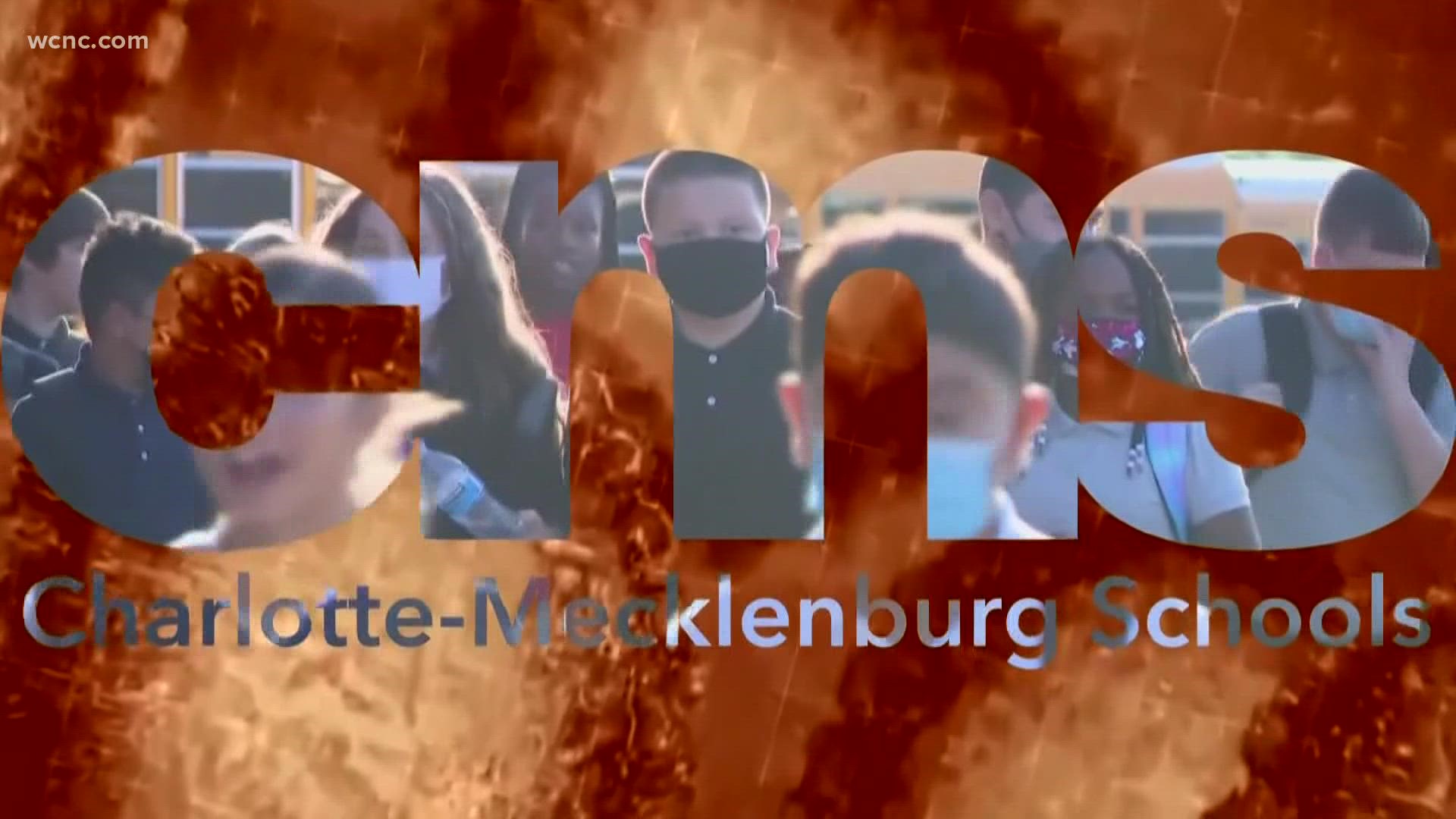CHARLOTTE, N.C. — Charlotte-Mecklenburg Schools (CMS) is taking steps to help students affected by the COVID-19 pandemic catch up on learning.
'It is clear that we must intervene now'
According to a release, CMS “has launched an unprecedented initiative to bring in additional resources to support students whose learning has been significantly disrupted during the COVID-19 pandemic.”
The district is seeking to work with local, regional, and national organizations to offer evidence-based tutoring and learning support services to students, with a goal to build a network of organizations that will offer support before school, after school, on weekends, and through summer programs.
According to CMS, it will invest up to $50 million from federal COVID-relief funds to build this student support network.
"It is clear that we must intervene now to improve outcomes for many of our students, especially those from traditionally underserved racial and socioeconomic backgrounds," CMS Superintendent Earnest Winston said in a news release. "Gaps in student achievement that existed before the pandemic have grown wider, and they will not narrow without expanding learning opportunities and support beyond the time students are with our teachers and staff in classrooms during the school week."
According to CMS end-of-year results for the 2020-21 school year, college and career readiness rates in reading for third through eighth-graders dropped by 15.5 points from the 2018-19 school year, and English rates declined by 13.9 points.
'Do the most good for the most children in the fastest way possible'
Munro Richardson, executive director of community-wide children’s reading initiative Read Charlotte, said he believes it will take a combination of classroom instruction, support from families, and high-quality tutoring to help students succeed moving forward.
“When we look at the test scores from the spring, what we saw was carnage across the entire county,” Richardson said. “The pandemic didn’t spare any racial group, any socioeconomic group. Test scores were down across the board.”
PREVIOUS COVERAGE: A look into CMS low-performance school data
Read Charlotte focuses on uniting parents, educators, and community partners to improve children’s literacy from birth through third grade.
“We know that when we move the needle on a child reading by third grade, regardless of what zip code they grow up in, what their native language was, what they look like ... we are changing the rest of their life," Richardson said.
Richardson said more support programs for students are a good start to help them get back on track, but there need to be more discussions among the district, the city, the county, private philanthropies, the business community, and the faith community about how best to fill students’ needs.
"We're all going to have to get around a table together and make sure that we are leveraging these dollars and investing in the right ways that will do the most good for the most children in the fastest way possible,” Richardson said.
'Teachers are having to do the heavy lifting'
This school year, teachers are being faced with more challenges in the classroom as students return five days a week for face-to-face instruction.
"One of the things that the data is suggesting is that teachers are having to do the heavy lifting of meeting students' academic needs from not only the current grade level but also from the grade level before, and in some cases, two grade levels before,” said Drew Polly, a professor in the elementary education program in the Department of Reading and Elementary Education at the UNC Charlotte Cato College of Education.
WCNC Charlotte learned Monday that 524 teachers have separated from the CMS system since Aug. 1, 2021, and 93 more separations are currently pending through the end of the calendar year.
Polly said he believes educators and students may be dealing with the effects the pandemic has had on learning for several years.
"Some of the big unfinished learning areas clearly are academic in reading and mathematics, but some of the other areas that need to be addressed are students’ cooperative learning skills, students' interaction with each other, students' mental health,” Polly said.
With school districts looking to add extended support for learning opportunities, Polly said he would like to see programs that are not strictly academic.
“It needs to be fun and engaging,” Polly said. “Sitting after school on a computer program or sitting after school and spending time doing worksheets -- or as we call them these days 'activity sheets' -- is not really beneficial compared to the idea of playing mathematics games, playing literacy games.”
CMS has issued a request for proposals (RFP) for qualified organizations to partner with. Approved programs will begin as soon as the second semester of the 2021-22 school year and last through the end of the 2023-2024 school year.
Contact Kendall Morris at kmorris2@wcnc.com and follow her on Facebook, Twitter and Instagram.

